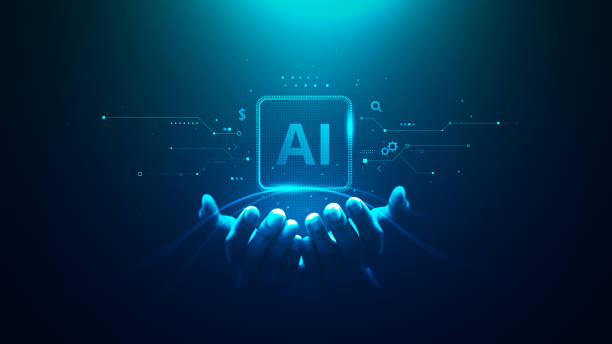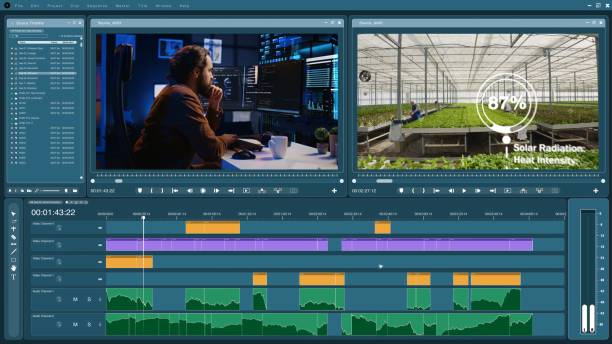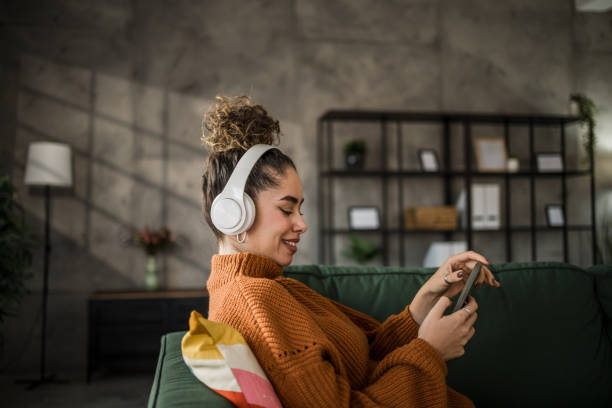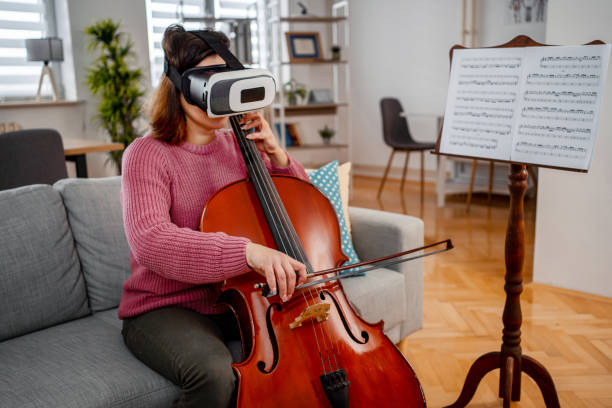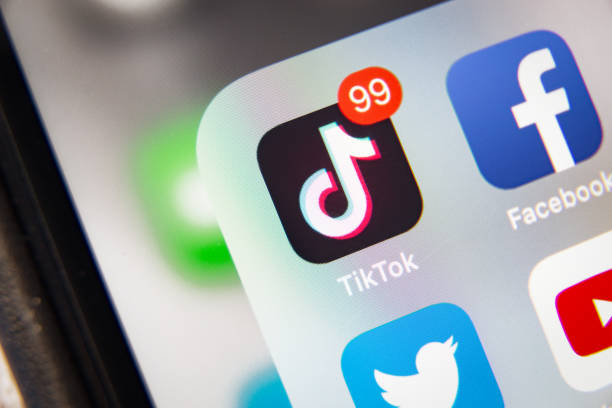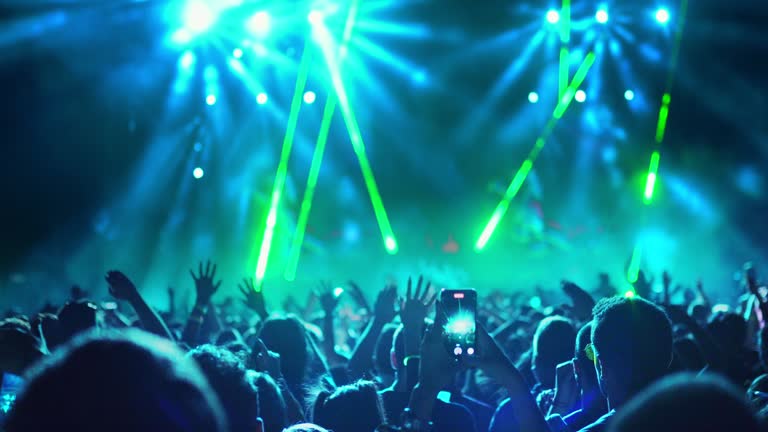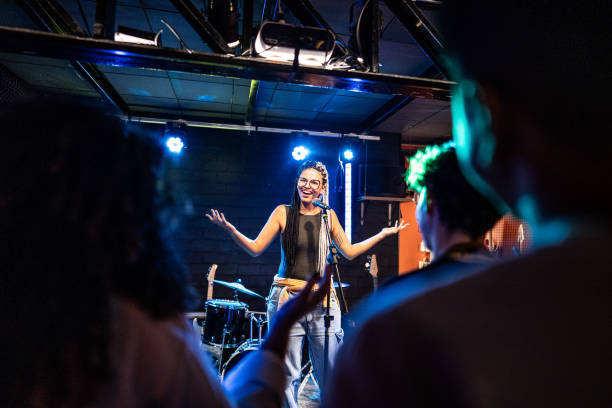Introduction: Changing the Creative World with AI
Artificial Intelligence is not just a tool for science or business anymore. It is now changing the way we create movies and music. AI is being used by creators, producers, and even independent artists to do things faster, smarter, and sometimes even better. From writing scripts to composing music, AI is adding a whole new level of creativity to the industry. People once believed that art could only come from the human heart, but now we see machines helping us express emotions and stories in amazing new ways. The film and music world will never be the same again thanks to the rise of artificial intelligence.
AI in Scriptwriting and Storytelling
The way stories are written is getting smarter with the help of AI. Today, tools powered by AI can help writers come up with ideas, suggest plot twists, and even write full scenes. This doesn’t mean writers are being replaced, but rather supported by AI. Writers who get stuck or feel blocked can use AI to keep going. Filmmakers use AI to find common patterns that audiences love and write stories that are more likely to connect with people. AI doesn’t have feelings, but it can study huge amounts of data to understand what people enjoy in a story, making it easier to deliver great content every time.
AI in Visual Effects and Animation
Visual effects used to take a long time and a big budget, but AI is changing that. Animators now use AI to design backgrounds, characters, and even movements much faster. AI can predict how something should look or move and create it in seconds. This is saving time and money for movie studios, allowing them to focus more on creativity. Animation has become more life-like and stunning with AI support. From explosions to facial expressions, AI helps make everything look better on screen. The technology is not taking away jobs but helping artists bring their dreams to life faster and more efficiently.
AI in Music Composition and Sound Design
Music is a language of emotion, and AI is learning it well. AI can now compose background scores, beats, or full songs based on what the user wants. Musicians use AI tools to experiment with new styles, test sounds, and get inspiration. Sound engineers also use AI to clean audio, match pitch, and enhance voices. The result is high-quality sound that connects with people. Some platforms allow users to type in a mood or style, and the AI creates a soundtrack in minutes. It’s not about replacing human artists—it’s about helping them make magic faster and more easily than ever before.
Personalized Experiences with AI
AI doesn’t just help create music or films—it also helps us enjoy them in better ways. Streaming services like Netflix and Spotify use AI to recommend content based on what we like. This means every user gets a personal experience. AI looks at our choices and finds what we might enjoy next. Creators also use this data to understand what kind of stories or songs are most loved. This personal connection makes entertainment feel more special. With AI, the viewer or listener becomes part of the creative process, enjoying content that feels made just for them. This is a huge step forward in entertainment.
Expanding Opportunities for Independent Creators
Independent creators now have more chances to shine thanks to AI. Before, only big studios had the tools to create high-quality content, but AI has leveled the playing field. With user-friendly AI tools, solo musicians and filmmakers can produce professional work from home. This opens up more space for fresh voices and new talent. Artists who once struggled with editing, sound mixing, or scriptwriting can now get help from smart software. AI gives power back to the artist, letting them focus on creativity while the tech handles the tough parts. As a result, the entertainment world is becoming more diverse and exciting.
AI-Powered Editing and Post-Production Tools
Editing is one of the most time-consuming parts of making music or film. But now, AI-powered tools are speeding up the process while improving the quality. AI can automatically cut, match, and correct scenes, making the editor’s job easier and faster. Music producers use AI to remove noise, enhance vocals, and balance sound levels. These tools don’t just save time—they also help creators focus more on the storytelling and emotional side of the work. With better editing tools, even beginners can make something that feels polished and professional. That’s the beauty of AI—it brings high quality within everyone’s reach.
Creative Collaboration Between Humans and AI
The best results happen when humans and AI work together. Artists are now teaming up with AI to create works that mix human emotion with machine precision. Instead of replacing people, AI supports the creative journey. Writers get plot suggestions, composers get melody ideas, and editors get perfect cuts. This teamwork brings fresh and exciting outcomes. Some creators even give credit to AI as their partner. This trend shows how open the industry has become to working with new tech. AI adds speed and power, while humans bring emotion and purpose. Together, they create something truly special and modern.
Ethical Questions and Industry Concerns
As AI grows in the creative world, it also raises some important questions. Who owns a song written by AI? What if AI copies someone else’s style or work? These issues are now being discussed by experts, creators, and legal teams. There’s also concern about fairness—will big companies dominate while small artists struggle? It’s important to find the right balance. Many say AI should be a tool, not the creator. Laws and guidelines are being made to protect human creativity. Even with all its benefits, AI needs rules so it can be used in a fair and ethical way for everyone.
The Future of AI in Entertainment
Looking ahead, the future of AI in entertainment is full of promise. We can expect more creative tools, smarter software, and even deeper personalization. Fans may soon help create stories with AI, choosing how films end or how songs sound. Studios will use AI to understand audience feelings better and deliver exactly what people want. Education in AI for creators will grow, and more people will learn how to use these tools. While challenges exist, the good possibilities are exciting. As AI evolves, the world of music and film will continue to change. And those who adapt will lead the way.
